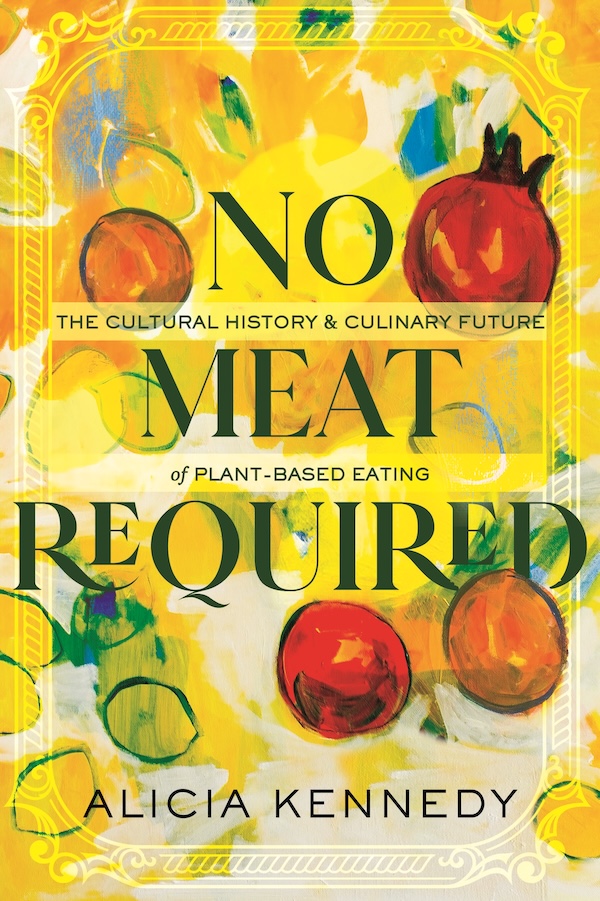
“No Meat Required: The Cultural History & Culinary Future of Plant-Based Eating”
By Alicia Kennedy
Beacon Press, 2024
208 pages, paperback, $17.95
“I have come to understand eating with the planet and animals in mind as a practice rather than a strict set of rules that must be followed to the letter at all times, no matter one’s circumstances or geography,” writes Alicia Kennedy in “No Meat Required: The Cultural History & Culinary Future of Plant-Based Eating.”
In this book, Kennedy brings vegetarianism and veganism back into the social and political context from which, at least in the United States, they arose. This political context is one that is not only about animal rights and environmentalism but is also, for many, about feminism, anti-racist politics, food justice, and reconnecting with pre-colonial and pre-industrial cultural culinary traditions.
Kennedy traces the cultural lineage of plant-based eating in the United States — from the countercultural hippie, feminist, and anti-war movements of the 1970s, to the punks of the 1990s and early 2000s, to the food justice movement of the present. She highlights the traditions of plant-based, vegetarian, and vegan eating such as Rastafarianism, debunking the notion that plant-based eating is akin to whiteness. At the same time, she unearths the darker sides of veganism, such as self-proclaimed “eco-fascist” vegans who espouse racist and ableist beliefs under the guise of environmentalism.
Moreover, Kennedy asks what we can learn from the history of plant-based eating, as we look towards building a food system that demonstrates care for the planet, people, and non-human animals.
Unlike what one might typically expect from a book on plant-based eating, this text does not try to convince readers to go vegetarian or vegan. Yes, Kennedy argues that adapting to climate change and creating more ethical food systems will require a reduction in global meat consumption. But she also argues that vegetarianism and veganism need to be more adaptable, and need to focus on supporting local agroecology rather than large corporations who market plant-based products. Rather than request readers adhere to one particular kind of diet, Kennedy invites us to lean into creativity, political and cultural significance, and adaptability when it comes to food. In this way, the book remains accessible to omnivorous and plant-based eaters alike.
– Madi Whaley
This review was originally published in the summer 2025 issue of The Maine Organic Farmer & Gardener. Browse the archives for free content on organic agriculture and sustainable living practices.